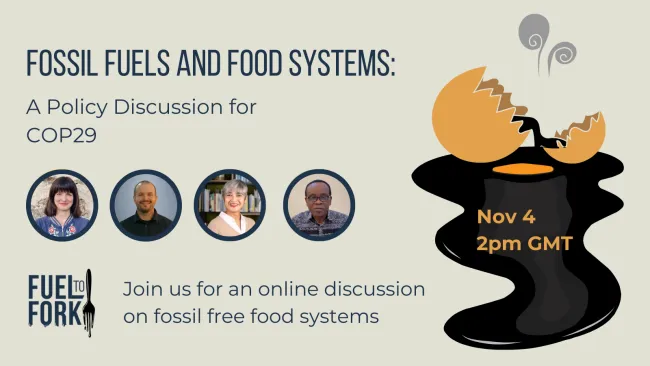Episode Summary
Since 2020, over 120 million tonnes of nitrogen fertilizer have been produced annually—a number set to rise by 50% by 2050. It’s easy to assume this is non-negotiable, that without it, we’d face a food crisis. But do we really need all this fossil-based input? As it turns out, there are many ways we can reverse this trend - from curbing overuse and adopting alternative technologies to rethinking our diets and transforming farming practices. We explore a range of options to ease our dependency on fossil fueled agrochemicals.

Register for our webinar
About the Experts
Lisa Tostado is the Agrochemicals and Fossil Fuel Campaigner in the Center for International Environmental Law's (CIEL) Fossil Economy Program, based in Paris. Her work focuses primarily on synthetic fertilizers and pesticides as interdependent inputs to a destructive corporate-controlled food production model that is contributing to catastrophic biodiversity collapse, toxic pollution, the violation of human rights, and global heating.
Joanna Larson is the owner of Prairie Gates Farm, North Dakota. The farm sells beef, vegetables and cut flowers. Joanna is a sustainability professional with a production agriculture and energy background.
Christine Delivanis is head of the Food, Agriculture and Nature Programme at SystemIQ. With a background in marketing and sustainability, she focuses on helping companies address complex environmental challenges, particularly in relation to nature and climate risks.
Georgina Catacora-Vargas is a member of the IPES-Food panel, and professor at the Academic Peasant Unit ‘Tiawanacu’ of the Bolivian Catholic University. She is president of the Latin American Scientific Society of Agroecology, and advisor to the Agroecology Fund. She is an agricultural engineer with a PhD in Agroecology..
Mamadou Goïta is a member of the IPES-Food panel, the executive director of the Institute for Research and Promotion of Alternatives in Development (IRPAD), and a development socio-economist and specialist in education and training systems. He works closely with farmers’ organizations in Africa and other continents
Swati Renduchintala is currently an Associate Scientist with World Agroforestry (CIFOR – ICRAF) and has been working with the Andhra Pradesh Community-managed Natural farming programme for the last 5 years. Swati is liaisoning with governments and partner organizations and other entities in India and internationally working towards agroecological transformation.
Jennifer Clapp is a Tier I Canada Research Chair in Global Food Security and Sustainability and Professor in the School of Environment, Resources and Sustainability at the University of Waterloo, Canada. Dr. Clapp is currently a member of IPES-Food and a member of the Scientific Advisory Committee of the UN Food Systems Coordination Hub.
References and Recommended Resources
Report: Fossils, Fertilizers, and False Solutions: How Laundering Fossil Fuels in Agrochemicals Puts the Climate and the Planet at Risk. (CIEL, 2022)
TABLE Explainer: Nitrogen in the food system (Rasmus Einarsson, 2024)
Feed Podcast: Narrowing the yield gap in Sub-Saharan Africa (Klara Fischer and Martin van Ittersum, 2023)
Report: The Politics of Knowledge: Understanding the Evidence for Agroecology, Regenerative Approaches, and Indigenous Foodways (Global Alliance for the Future of Food, 2023)
Blog: Agroecology in Andhra Pradesh, India: Unveiling Hidden Costs and Benefits through True Cost Accounting (Global Alliance for the Future of Food, 2023)
Article: Agroecology Can Promote Climate Change Adaptation Outcomes Without Compromising Yield In Smallholder Systems (Dittmer et al., 2023)
Report: Reducing emissions from fertilizer use (SystemIQ, 2022)


